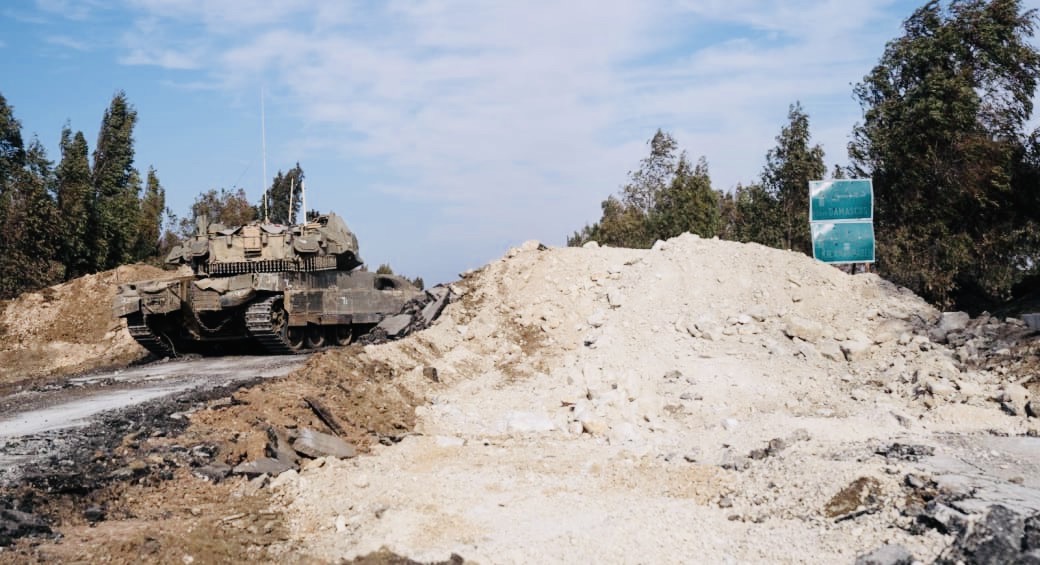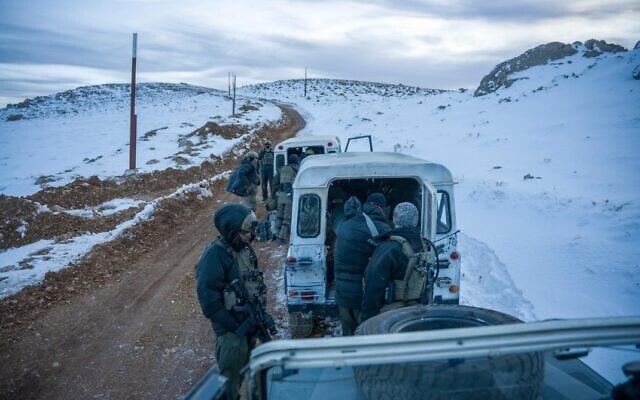Israel has exploited the downfall of Syrian President Bashar al-Assad to strengthen its defences along the border with Syria and to ensure that Syria’s arsenal of strategic weapons do not fall into the hands of hostile jihadist forces.
Since the seizure of Aleppo, Hama, Homs and Damascus by jihadist rebels led by Hayat Tahrir al-Sham, Israel has rushed in preemptively to occupy a demilitarized zone inside Syrian territory, taken over Syria’s side of Mount Hermon, and carried out intensive air attacks against Syria’s military assets.
These have been Israel’s boldest military moves against Syria, an arch enemy, since the 1973 Yom Kippur War.
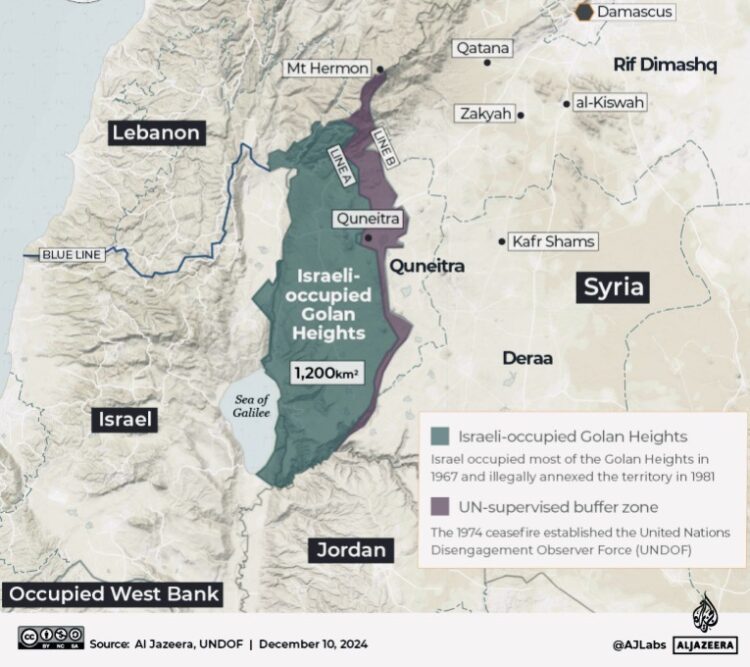
Israel’s campaign has been incremental.
Shortly after the rebels launched their lightning offensive last week, Israel warned them to stay clear of the roughly 400-square kilometer buffer zone. It was established in 1974 under an agreement brokered by Henry Kissinger, the then U.S. secretary of state, following the Yom Kippur War.
When unidentified gunmen tried to strike a post in southern Syria manned by UNDOF, the United Nations Disengagement Observer Force, Israel opened fire with artillery rounds.
In short order, Israel seized the buffer zone, claiming it had done so in coordination with UNDOF, which has patrolled the Israel-Syria border for the past 50 years.
Prime Minister Benjamin Netanyahu explained Israel’s rationale in terms of security. “We are acting first and foremost to protect our border,” he said on December 8. “The agreement has collapsed. Syrian soldiers have abandoned their positions.”
Netanyahu, who has claimed credit for setting off the historic chain reaction that resulted in Assad’s removal, added that the Israeli army took possession of the buffer zone to ensure that enemies do not entrench themselves so close to Israel.
Clearly, Netanyahu suspects the rebels may be unfriendly to Israel. So far, they have not commented on the future of Syrian-Israeli relations or Israel’s unilateral moves.
Netanyahu characterized Israel’s takeover as “temporary” and “defensive” and indicated that Israeli troops will remain in the Syrian section of the buffer zone until “a suitable arrangement is found,” or until order is restored in Damascus.
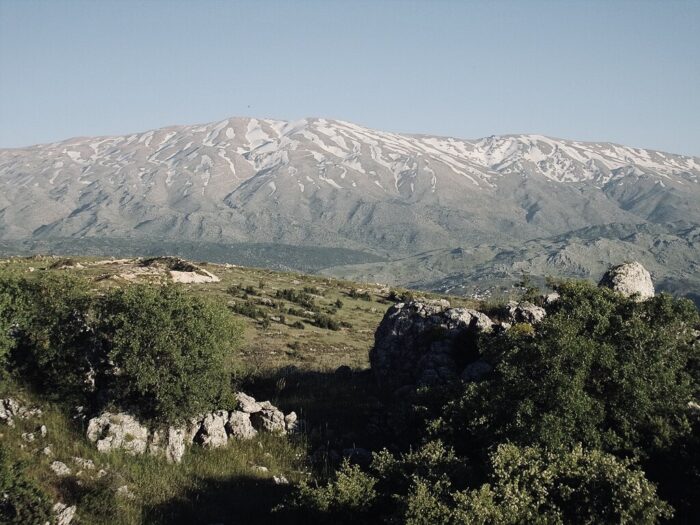
Israel captured Syria’s military base on Mount Hermon, the highest peak in the region, after Syrian soldiers left. The peak, 2,814 meters above sea level and usually covered by a blanket of snow during the winter, will enable Israel to better monitor the border area. Israel said it will maintain a presence there until the political situation in Syria is clarified.

In addition, the Israeli army has been consolidating its defences on Israel’s side of the Golan Heights, which was captured during the last phase of the 1967 Six Day War.
Apart from these measures, the Israeli Air Force has struck more than 350 military-related targets throughout Syria in the last four days. Until the upheaval in Syria, Israeli aircraft regularly bombed Iranian military sites in Syria, Syrian anti-aircraft batteries, and Hezbollah arms convoys heading toward Lebanon.
The most recent Israeli strikes began on December 7 when Israel eliminated Syrian air defences. Israel then attacked Syrian Air Force bases, weapon depots and weapon production sites in Damascus, Homs, Tartus, Latakia, Qamishli and Palmyra.
Israel has destroyed fighter jets, helicopters, drones, radars, tanks, long-range rockets, Scud missiles, cruise missiles and air defence missiles. The majority of these weapons were made in Russia, which, until Assad’s ouster, was Syria’s chief foreign ally.
By Israel’s count, its air force has obliterated from 70 percent to 80 percent of Syria’s strategic military capabilities.
Netanyahu compared the attacks to the British Royal Navy’s bombing of the French fleet at Mers-el-Kébir in Algeria in 1940 to keep it from being seized by Nazi Germany.
The Israeli Navy, in an operation conducted on December 9, destroyed 15 Syrian naval vessels in the ports of Latakia and Bayda, thereby eliminating the Syrian fleet.
Yesterday, Foreign Minister Gideon Saar acknowledged that Israel targeted several chemical weapons sites in Syria. In 2013, the Syrian regime agreed to relinquish its chemical weapons stockpile after it was accused of targeting civilians. In reality, Syria retained some of these toxic weapons.
Israel’s bombing campaign in Syria has elicited support and condemnation.
U.S. State Department spokesperson Matthew Miller endorsed Israel’s moves, implying that Israel had no alternative but to act after the Syrian army abandoned its positions, creating a potential vacuum that could be filled by jihadists bent on harming Israel.
Miller said that Israel’s seizure of the Syrian buffer zone and Mount Hermon was temporary, and that the U.S. would monitor the situation to ensure that its takeover does not become permanent.
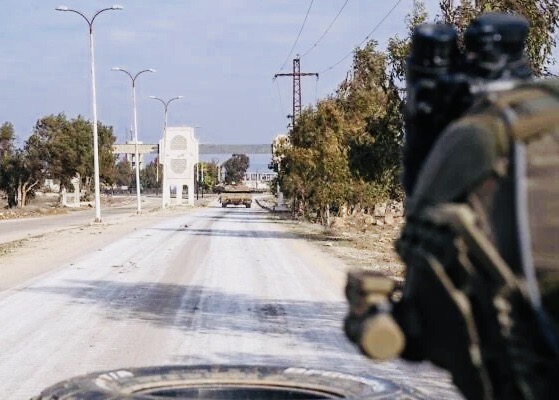
“Israel has said that these actions are temporary to defend its borders. These are not permanent actions, and so ultimately, what we want to see is lasting stability between Israel and Syria, and that means we support all sides upholding the 1974 disengagement agreement,” he went on to say.
Stéphane Dujarric, a United Nations spokesman, accused Israel of violating the 1974 disengagement agreement, which created the buffer zone.
Geir Pedersen, the United Nations special envoy for Syria, urged Israel to halt its “very troubling” military operations and said that deescalation is needed. “We are continuing to see Israeli movements and bombardments into Syrian territory. This needs to stop,” he said.
Danny Danon, Israel’s ambassador to the United Nations, justified Israel’s moves on purely security grounds. He claimed that Israel is not intervening in Syria’s affairs.
Muslim states have deplored Israel’s seizure of the Syrian portion of the demilitarized strip.
Egypt and Qatar accused Israel of taking advantage of the turmoil in Syria and violating Syria’s sovereignty.
Turkey’s foreign ministry denounced Israel’s actions, reiterating its support for Syria’s “territorial integrity.”
Saudi Arabia condemned Israel’s seizure of the buffer zone as a “violation of the rules of international law” and a deliberate act of sabotage to undermine Syria’s “chances of restoring its security, stability and territorial integrity.”
Iran claimed that Israeli “aggression” was a “flagrant violation of the United Nations charter.”
These condemnations were essentially ignored by Israel.
Netanyahu, in a message to the rebels, said that Israel will seek to establish formal relations with Syria, which has been in a state of war with Israel since Israel’s birth as a nation.
He warned that Syria will face further Israeli retribution if it threatens Israel. “If this regime allows Iran to reestablish itself in Syria, or allows the transfer of Iranian weapons or any other weapons to Hezbollah, or attacks us, we will respond forcefully and we will exact a heavy price from it.”
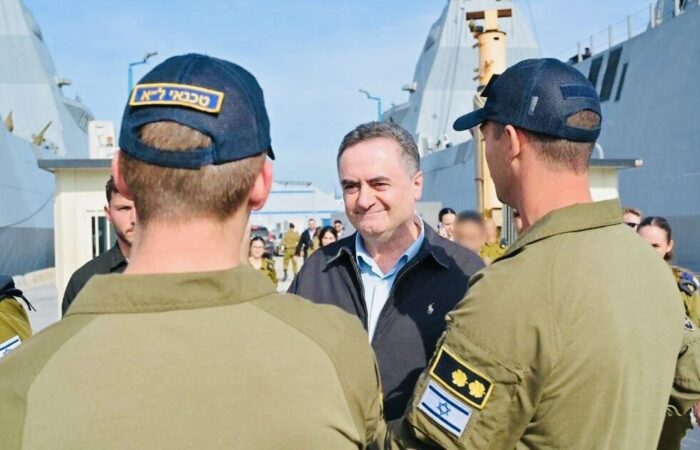
Defence Minister Israel Katz warned the rebels that Israel will not tolerate a hostile regime in Syria that acts against Israeli interests. “We will do anything to remove the threat,” he said.
It is far too early to know whether the rebel leadership will be antagonistic toward Israel. But unsettling footage from a mosque in Damascus on December 9 showed a Syrian rebel vowing to march on Jerusalem.
“This is the land of Islam, this is Damascus, the Muslim stronghold,” he shouted. “From here to Jerusalem. We’re coming for Jerusalem.”
Gunmen responded with cries of “Allahu akbar!” (“God is greatest”) in Arabic.
How representative they are of opinion within rebel ranks remains to be seen.
